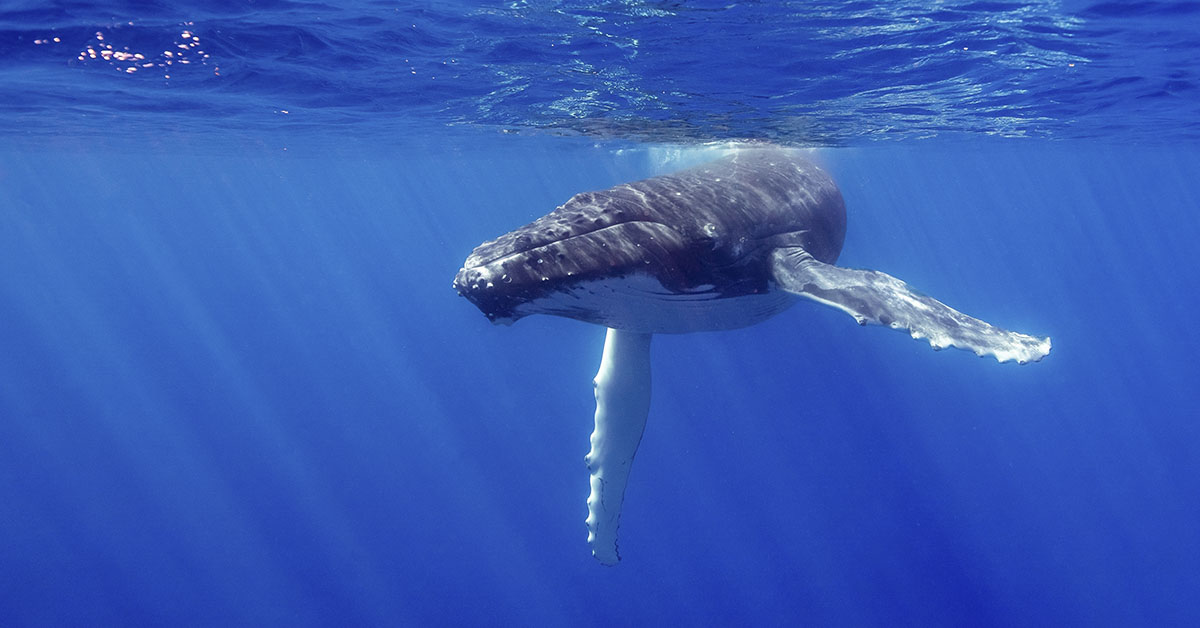Sperm whales appear all over the world. They swim in every deep ocean and brave extreme temperatures from the equator to the Arctic and Antarctic. They have massive heads that take up one-third of their body length. Inside are the largest brains in the planet, five times the size of a human’s. And they seem to have the intelligence to match. Scientists have been documenting and analyzing sperm whale language. They may be on the brink of translating the sounds that could only be surmised until now. And if whales can speak, researchers theorize they may become recognized as legal persons with formal rights.
Are sperm whales intelligent?
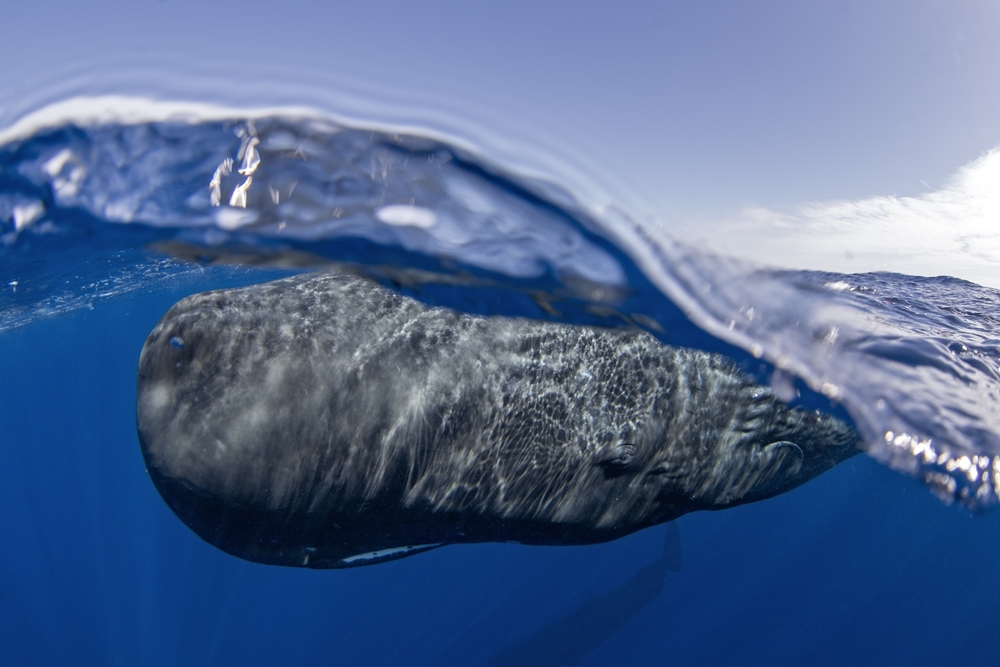
The intelligence and communicative skills of sperm whales have been recorded since the 19th-century. A 2021 study analyzed historical logbooks and found that sperm whales were initially easy to hunt. However, sperm whales seemed to immediately catch on and the whaling success rate fell 60%. The study theorized that the whales warned each other about the hunters through echolocation.
Translating whale language
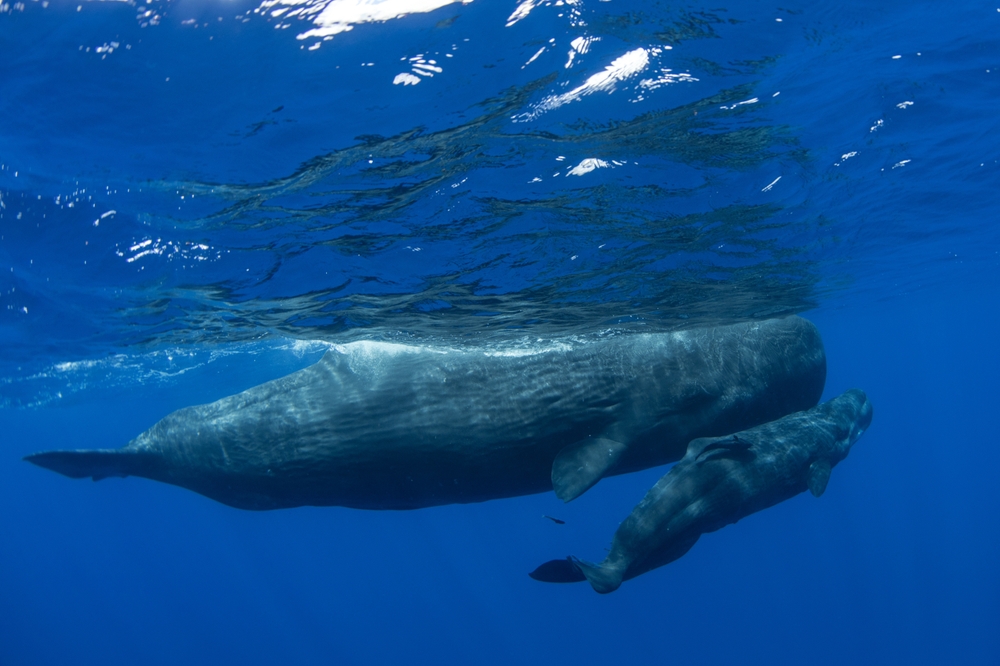
Researchers have documented many incidences of sperm whale communication since then. Two years ago, during a routine sperm whale observation on the Caribbean island Domina, scientists witnessed the birth of a calf, reports CBC. The clan gathered around the mother and called to each other in clicks and pauses like Morse code. After the calf was born, they held her above the water to breathe, lowering her after her fins fully unfurled. Researchers hope to translate the clan’s intonations beyond guessing what are cries of pain or joy, or arrangement of duties.
Read More: How a Whale Tried to Bridge the Linguistic Divide Between Humans and Animals
Sperm whales as legal persons?
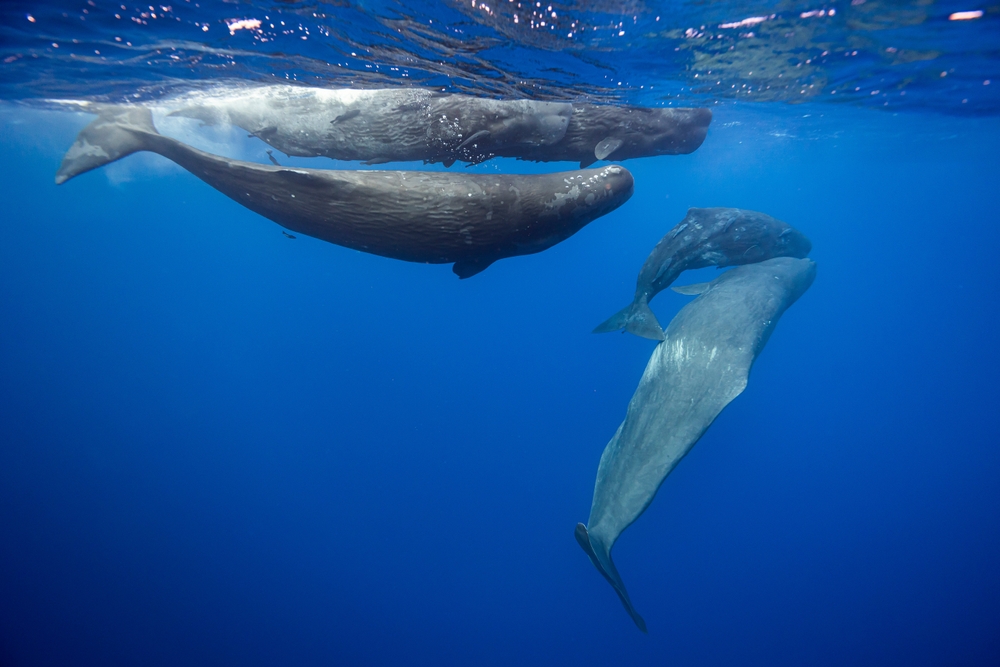
“I think we’re just now on the cusp of this immense legal world,” says marine biologist David Gruber to National Geographic. Sperm whale populations are considered endangered and are “safeguarded in the U.S. by the Marine Mammal Protection Act and worldwide by international whaling agreements,” explains the National Wildlife Federation. However, researchers believe decoding sperm whale language can reinvigorate their legal protection. If they can be recognized as persons with formal rights, their conservation may become more enforceable.
The Cetacean Translation Initiative

Gruber is the founder and president of Project CETI (Cetacean Translation Initiative). This organization includes dozens of linguists, biologists, roboticists, and experts in AI, all recording and documenting the sperm whales around Domina. Their work builds upon previous studies of animal communication, involving songbirds, chimpanzees, and river turtles. Their goal is to create a translator that could allow for human and cetacean conversion. Gruber and his colleagues are already anticipating the legal implications of such a tool.
The testimony of sperm whales
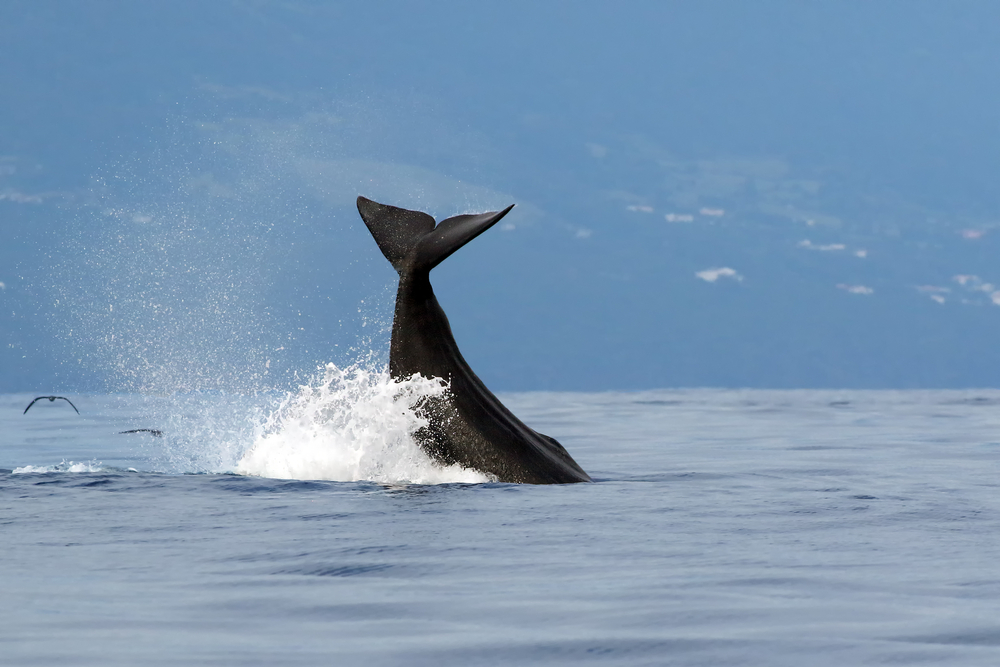
In a working paper to be published in the journal Ecology Law Quarterly, they theorize their invention may allow people to get a direct insight into the animals’ experiences. They explain that “such insights could provide a groundwork for new laws and inform how existing laws regulate actions that impact cetaceans.” For example, sperm whales use echolocation to hunt, navigate, and stay in contact with members of their clans, but not as well as in the past…
The disruption of whale life and communication
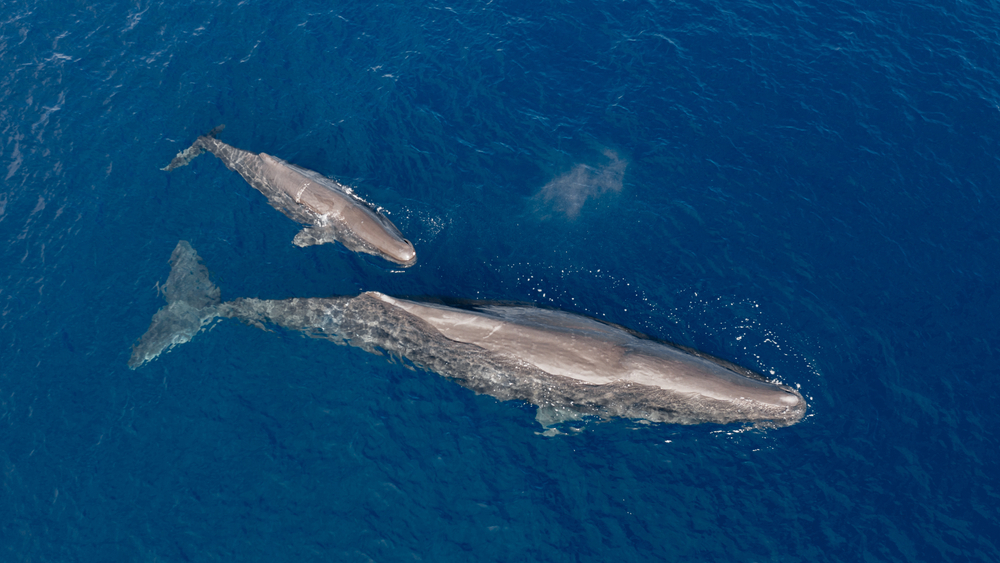
Ocean noise pollution (from oil and gas exploration, military sonar, ship engines, and construction) can disrupt regular functioning and cultural life. It may even be causing physical and psychological distress, just as sensory overstimulation is torturous to humans. A first-hand whale testimony about the impacts of the aquatic din can lead to rigorous laws against it. Current regulations about underwater noise exist but they are lax in application.
If sperm whales could speak our language…
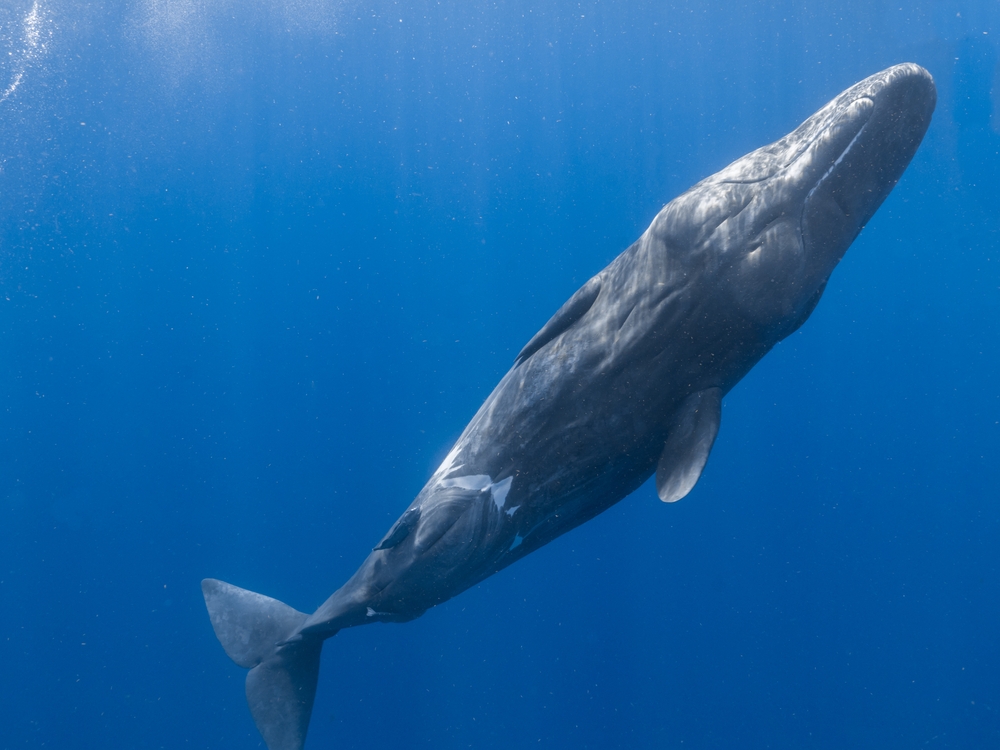
Sperm whales have already been proven to show signs of personhood. Researchers found clans have distinct dialects, hierarchies, customs, and lifestyles from each other. Clans stick together like human tribes. The aforementioned birth scenario is an example of this. A translator tool would allow whales to express what researchers could only theorize. They can also explain the effects of human meddling, such as by hunting or capturing. This also can lead to more stringent protection laws or more reinforcement of existing ones.
Read More: Heroic Dolphins Shield Lifeguards from Great White Shark in New Zealand Waters
Do animals deserve equal rights?
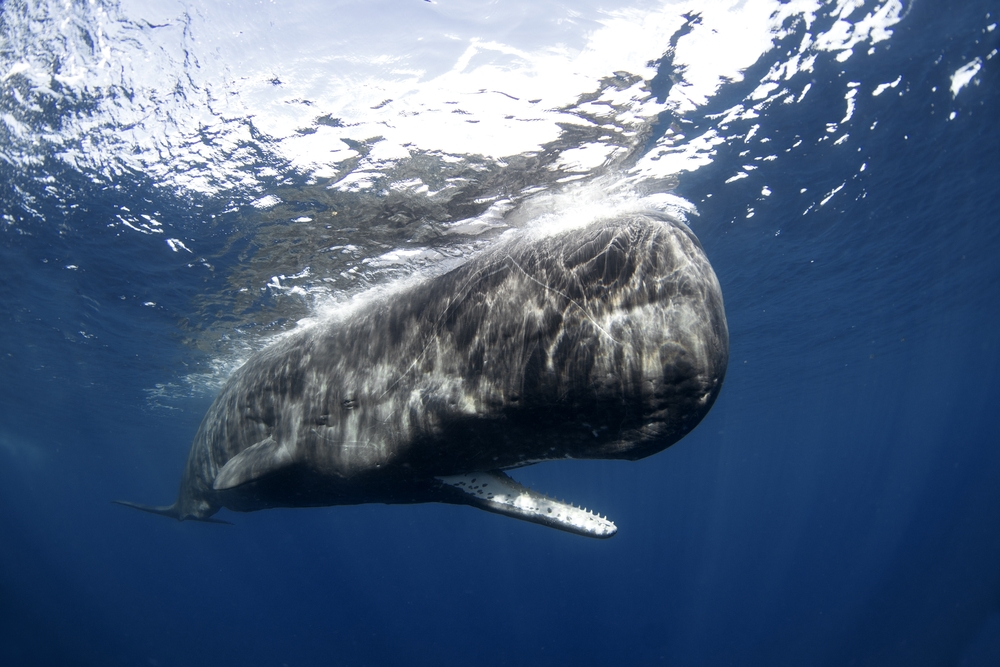
That leads to the question of legal personhood. In the United States, there are laws against animal mistreatment, which creates some protection but not much enforceability. The Nonhuman Rights Project has tried to file lawsuits for the release of elephants and chimps in captivity. In these papers, they include scientific research proving the creatures’ mental and emotional capabilities, like self-awareness, social culture, decision-making, and the ability to plan for the future. Therefore, the Project’s lawyers argue these animals should receive equal rights.
The similarities of humans and sperm whales
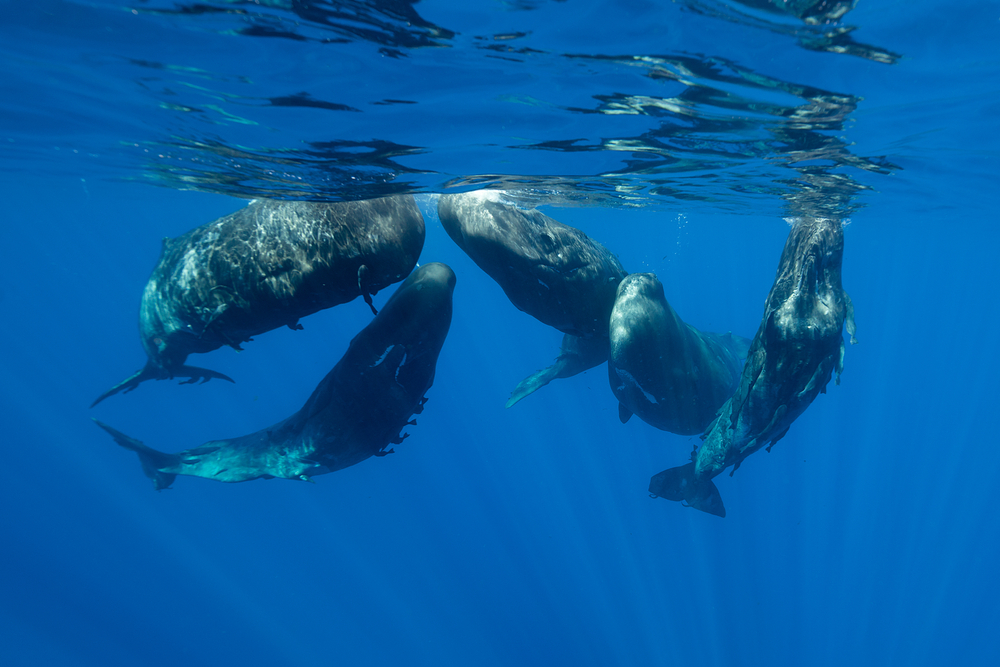
However, courts rejected this statement, saying beings must be able to bear social responsibilities and legal duties. In other words, those with legal rights must also be held liable. But the experts at Project CETI believe they may legally prove sperm whales can bear duties, using cases like the birth. Decoding sperm whale language will further explain the social structures researchers have observed. “These animals are the size of a school bus, they live in a part of the world that we find difficult to explore — and yet there’s fundamental similarities,” said Shane Gero, a scientist-in-residence at Ottawa’s Carleton University and co-author of a 2024 CETI study that examines sperm whale vocalizations.
Animals with human rights
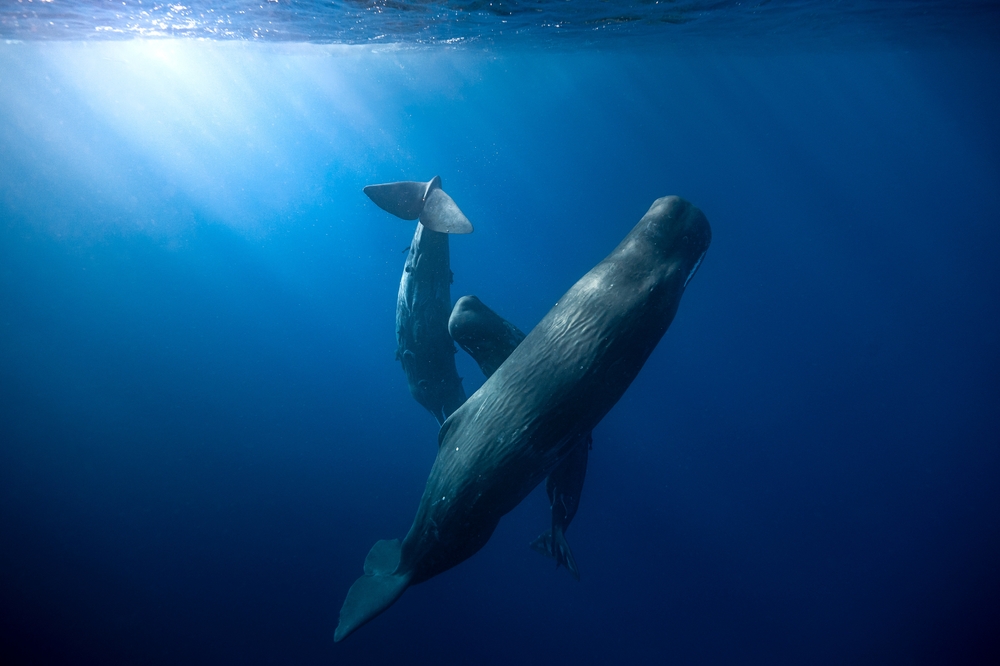
Although the U.S. hasn’t granted animals human rights, Panama has federally recognized the right for sea turtles to be free from human harm. Meanwhile, Ecuador’s highest court has declared all animals as legal persons, with follow-up discussions about which species deserve which rights. More importantly, one year ago, Indigenous leaders of New Zealand and the Cook Islands signed a treaty recognizing whales as legal persons, says the Conversation.
Don’t rely on translated whale language
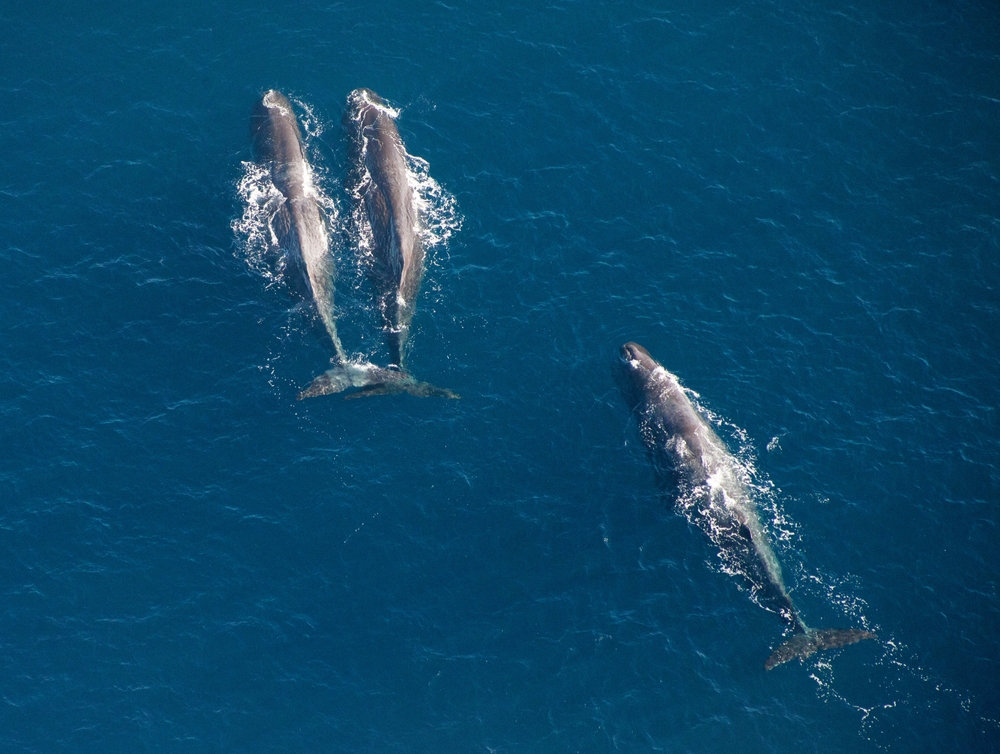
All of this aside, Project CETI researchers deride the idea that sperm whales need to verbally defend themselves in order to receive proper protection. “Why must nonhuman animals resemble humans for us to empathize with their pain and safeguard their well-being?” they write. “Must they articulate their suffering when we already possess a clear understanding of the injuries we cause?” Additionally, animals that are incapable of complex communication still deserve conservation. There is much to appreciate and empathize with for every creature as they are, whether or not their speech can be translated.
Read More: Blue Whales Have ‘Unprecedented’ Bounce Back From Brink Of Extinction
